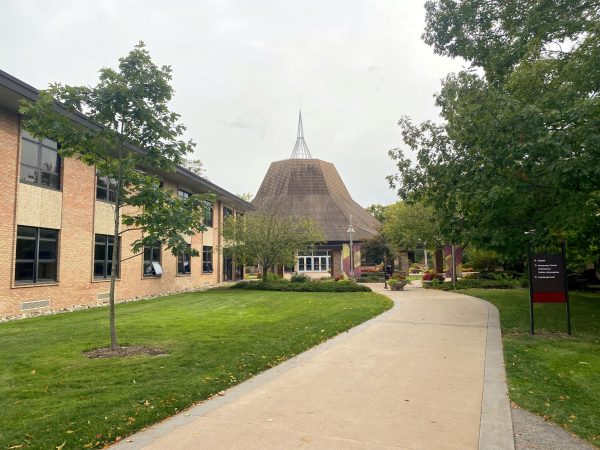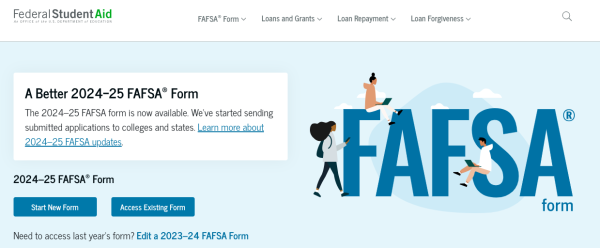Catholics and Protestants reach across Reformation divide
Members of both Catholic and Protestant denominations joined forces to host the presentation “What Can Catholics and Protestants Learn From One Another Today?” last Thursday evening October 5 in Calvin’s chapel.
The conversation centered on unity. Dr. Jared Ortiz, a Catholic professor at Hope College, summarized the event, saying: “We are very far from reunion…. Christ wills our reunion…[it] is in God’s hands.”
The event opened with a hymn and a call from the president of Calvin College Theological Seminary, Rev. Jul Medenblik, to “lift our voices…in the understanding that we worship one God.”
Following Medenblik, Ortiz commended the younger generation on their ability to make friends across ecumenical borders by “making space” for each person to live out their faith. Although the focus was on unity and learning from each other, Ortiz warned his listeners not to abandon tradition or beliefs in the pursuit of getting along. He encouraged seeking out truth, as faith and salvation are the “best expression of truth.”
One speaker at the event, Dr. Karin Maag, Director of the Meeter Center here at Calvin, zeroed in on points that connected Protestants and Catholics during the Reformation and today. These points focused on worship and education.
For example, several hymns found in commonly used Catholic hymnals are also found in Protestant hymnals. She also mentioned that “Lift Up Our Hearts,” the hymnal used at Calvin College, contains songs written by Catholic authors.
In addition to sharing worship songs, Maag noted that both Catholics and Protestants practice the sacrament of baptism and recognize the other denomination’s understanding of baptism as valid (i.e. converts do not get re-baptized). During the Reformation, both Catholics and Protestants focused on educating the younger generations. Both developed a catechism lesson book and created private denominational schools. In Maag’s words,the churches “shared a desire to shape the faith of the rising generation.”
Focusing on another issue that spans generations, Dr. Ronald J. Feenstra, an academic dean at Calvin Theological Seminary, spoke on an area of high controversy between Catholics and Protestants: the Eucharist.
Feenstra named Eucharist, a celebration of the Lord’s Supper, “spiritual food for the journey of faith” as well as a reminder of God’s faithfulness. Catholics believe in Transubstantiation, the bread and the wine upon consecration changing into the body and blood of Christ, while Protestants do not.
Despite this disagreement, “through Christ,” says Feenstra, “we are united in one body.” The sacrament of Communion emphasizes both “our communion with God, and with each other.”
Because of this, Catholics and Protestants should be able to teach each other how to be a better Christian. According to Ortiz, Catholics can learn, a deeper, more personal, relationship with Christ, as well as a “fiery zeal” for the word of God. Eighty-five percent of Catholic college students do not practice their faith, so a heart on fire for God is an appealing draw for Catholics.
Protestants can rediscover “their continuity with Catholic traditions” from our Catholic brothers and sisters. Many Protestant to Catholic converts state they feel their faith is fulfilled through the various Catholic liturgies and traditions. “The original Reformers considered [themselves] the true Catholics,” said Ortiz.
The event’s closing hymn was “The Church’s One Foundation,” as a reminder to all the attendees that we share the same God on which the church was built.
“Our ecumenical friendship is a beginning,” Ortiz explained, proud of the progress made so far. “[But] … it is only a beginning.”








